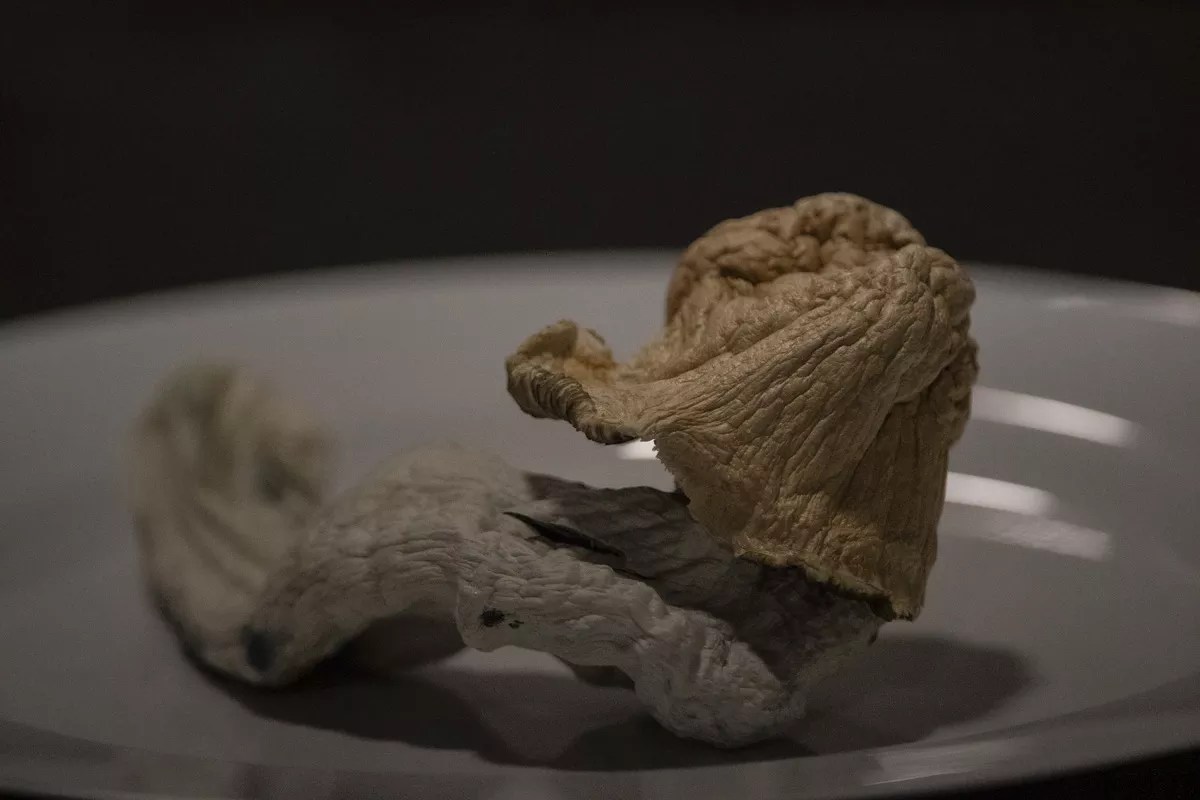
Evan Semón

Audio By Carbonatix
Colorado’s mushroom officials aren’t ready to cut the crap just yet.
The state Natural Medicine Division (NMD), created earlier this year to regulate the commercial side of psilocybin, is currently considering whether to allow manure in the medical mushroom program. Although manure is a traditional and natural growing medium for psychedelic mushrooms, most mushroom cultivators have moved on to various grains, minerals and pulverized coconut shells, according to hobbyists and professionals at the NMD’s most recent hearing.
“A lot of people in the hobbyist field have kind of moved away from using manure and are not even supplementing at all, because it just causes extra steps to the growing process,” amateur mushroom grower Harold Evans said during the December 10 hearing. “It overcomplicates things.”
Oregon, the first state to legalize medical psilocybin, doesn’t allow licensed mushroom growers to use manure. In Colorado, where medical psilocybin centers and cultivations could open as soon as 2025, public health officials worry about potential contamination risks.
So why keep the cow pies around?
Colorado’s voter-approved initiative that legalized medical psilocybin and decriminalized other psychedelics had several specific guidelines around personal use and medicinal intent, but left most of the regulatory decisions to lawmakers and government agencies. However, the new psychedelics law also mandated that any future rules respect the practices of Indigenous people, and some Indigenous groups grow mushrooms in manure, according to attorney Mason Marks.
And that’s not the only reason to consider allowing manure. “A lot of the vegetables that people eat is grown on manure, so I’m not sure how this would be any different,” Marks said during the December 10 hearing, noting that substrate alternatives such as coco coir are “often mined in environmentally irresponsible ways.”
According to Noah Novello, who runs a cannabis and psilocybin testing lab in Louisville, psilocybin-infused edibles are often “dirtier” than raw mushrooms grown from manure substrates.
“That might not necessarily be from the manure or the mushroom, but from things like E. coli or salmonella that are introduced somewhere in the process and ending up in the final [infused] product,” he said.
Manure is typically cheaper than other substrates and promotes more potent mushroom growth for certain species, as well; the products are usually sterilized before sale unless purchased straight from the source. Still, the majority of mushroom growers meeting with the NMA said that most psychedelic mushroom species don’t require manure, and a handful of mushroom entrepreneurs expressed concerns about public perception of medical mushrooms grown in animal waste.
NMD officials, while acknowledging the need to respect Indigenous psychedelics tradition, have not yet committed to any rules regarding manure. In any case, the regulations would only apply to licensed psilocybin businesses, and not personal use or cultivation.
Psilocybin in wastewater?
Manure wasn’t the only waste-management topic at the NMD meeting. Researchers from the Colorado Department of Public Health & Environment presented plans to address other potential environmental and public safety concerns, including wastewater.
According to CDPHE environmental impact researcher Kaitlin Urso, psilocybin is water-soluble and remains active in water unless it is exposed to heat or other filtration techniques. She said she is also concerned about substrate removal, since spores can remain active and “re-fruit” inside of compost bins; they may also travel through the air once commercial cultivation begins.
“There could be risks of potential water contamination. composting, runoff and then also from concentrate manufacturing,” Urso said. “How long does psilocybin survive in water? We do know that it is water-soluble, which means it cannot be filtered out. But is it deactivated with the disinfection rates that are common at our wastewater and drinking water treatment plants to where it would not be a problem? Those are some unanswered questions in research that we need filling in the blanks.”
Urso stressed that most available psilocybin research is new or incomplete, and that her findings could change as the CDPHE gets more firsthand experience with mushrooms. Still, she recommended that Colorado mushroom growers keep their operations indoors to prevent potential spore spread – not that Colorado’s dry and sunny climate is great for fungi, anyway.
Urso also recommended respiratory protection for workers to protect them from inhaling spores.
“We highly recommend N95 respiratory protection for workers in the cultivation rooms for the spores to prevent mushroom workers’ lung. This is a well-documented exposure risk, and it’s really just from inhaling particulate spores into our lungs,” she warned.
The NMD will continue to hold public hearings into early 2024 as officials prepare their first draft of rules.